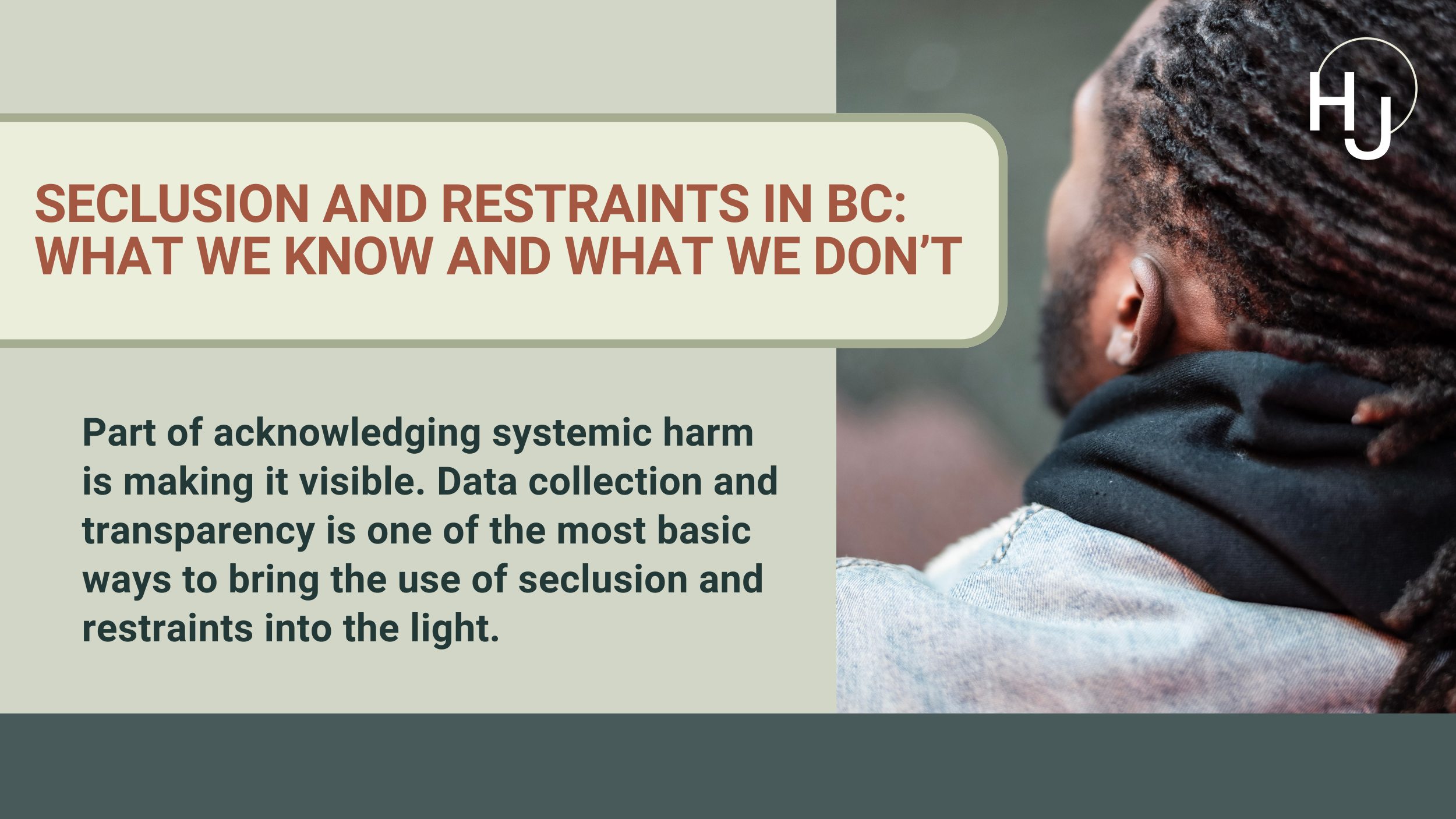
Conditions and Treatment Decisions that Support Wellbeing
The BC Mental Health Act establishes many of the laws that shape the conditions and treatment that people experience when detained in hospitals and other facilities.
There are many ways that the Mental Health Act could be improved to better respect human rights and incorporate evidence-based best practices that promote wellbeing.
Here are some examples:
The Mental Health Act authorizes detaining hospitals and facilities to “discipline” patients. This means that patients can be solitarily confined in seclusion rooms, mechanically restrained with straps that tie them to their beds, or otherwise punished during their time in hospital. There are no limits on when, how, why, or how long someone can be disciplined and no review process.
The Mental Health Act removes health care consent rights for involuntary patients. All involuntary patients can be administered any form of psychiatric treatment the facility chooses without consent from the patient or their families or personal supporters who know them best.
The Mental Health Act fails to address many important aspects of daily living conditions that could support recovery. There are no patient rights to access phones or computers, to receive visitors, to protections during clothing removal, or to grounds passes to get exercise or fresh air. The result is that many involuntary patients experience unnecessary trauma, isolation, and alienation from the health care system.
-
In this area of work, Health Justice is exploring how BC could reduce harmful impacts and better promote wellbeing in the Mental Health Act. We are engaging with people with lived and living experience of involuntary treatment under the Mental Health Act and Indigenous experts on how improvements could be made to the BC Mental Health Act. We also include input from other stakeholders, including family members of people who have experienced involuntary treatment, health care and other service providers, and other community organizations.
-
There are many different models for approaching conditions and treatment decisions in mental health and substance use laws around the world. Along with our engagement, Health Justice is conducting research on mental health and substance use treatment legislation from other Canadian and international jurisdictions to find effective examples that promote supportive conditions and meaningful involvement in treatment decisions.
-
As this part of our project completes, we will publish the results of our engagement and research to support and inform conversations about how we can improve the Mental Health Act in BC.



